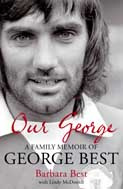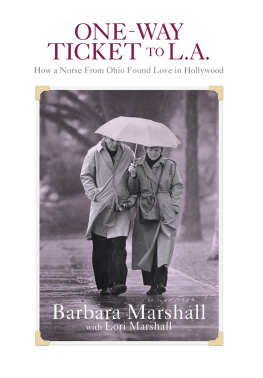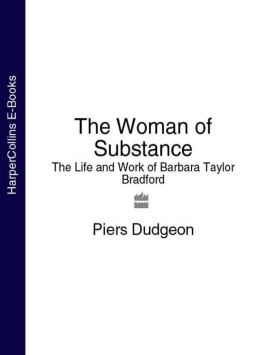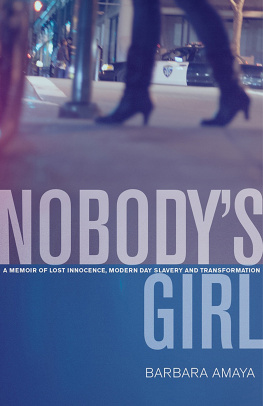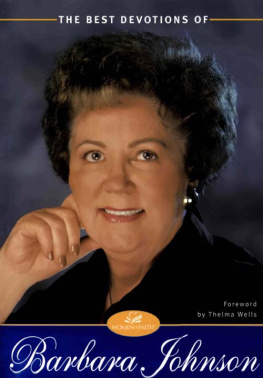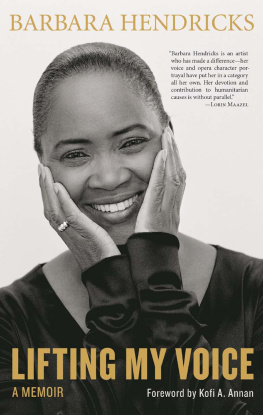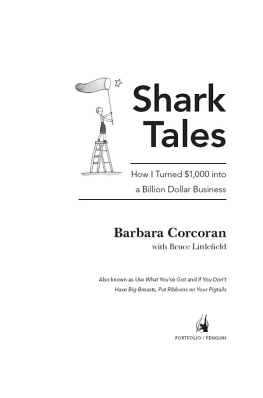
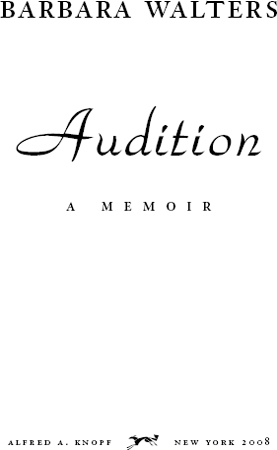
Contents
To the memory of my sister, Jacqueline Walters,
and to my amazing daughter, Jacqueline Walters Danforth,
both of whom changed my life
Prologue
SISTER.
I thought for a while that is what the title of this memoir should be because it was my older and only sister, Jacqueline, who was unwittingly the strongest influence in my life. Jackie was three years older than I, but all our lives she appeared younger. My sister was mentally retarded, as the condition was called then, though only mildly so. Just enough to prevent her from attending regular school, from having friends, from getting a job, from marrying. Just enough to stop her from having a real life.
Her condition also altered my life. I think I knew from a very early age that at some point Jackie would become my responsibility. That awareness was one of the main reasons I was driven to work so hard. But my feelings went beyond financial responsibility.
For so many years I was embarrassed by her, ashamed of her, guilty that I had so much and she had so little. Very little was understood about retardation almost eighty years ago when Jackie was born. There were few schools that dealt with what we now call the intellectually impaired, few workshops where they could go and learn a trade, few employers who could figure out how to use their talents and their loyalty.
Today Jackie could probably get a job, something simple but productive. She might even have met and married a nice man. But back then Jackies life was essentially one of isolation, except for the relationships she had with me and my mother and father.
My parents protected her. They never discussed her outside the family or explained her condition to anyone. People wouldnt understand, they felt, and Jackie would be shunned and humiliated.
Jackies isolation also contributed to my own sense of isolation. As a child I didnt have birthday parties because Jackie didnt. I didnt join the Girl Scouts because Jackie couldnt join. I rarely had friends over to the house because they didnt know what to make of my sister and I would hear the whispersreal or imagined.
When I was older, my mother, heartsick at Jackies loneliness, would often ask me, when I was going out with a girlfriend or on a date with a boy, to take her along. I loved my sister. She was sweet and affectionate and she was, after all, my sister. But there were times I hated her, too. For being different. For making me feel different. For the restraints she put on my life. I didnt like that hatred, but theres no denying that I felt it. Perhaps youll be horrified at my admission. Or perhaps youre guilty of some of the same emotions and will feel relief that you are not alone. I imagine, as I write this, that almost anyone who has a sibling who is chronically ill or mentally or physically impaired will understand what I mean.
I recently came across a book that helped explain a lot about the impact Jackie had on my life. Its called The Normal One: Life with a Difficult or Damaged Sibling, written by Jeanne Safer, a psychotherapist who grew up with a very difficult brother. I recognized myself on almost every page: the prematurely mature child; the looming responsibility for a siblings care and well-being; the compulsion to be an over-achiever; the fear of failure. I wish I had read the book earlier in my life, but Im not sure it would really have made a difference. Jackie would still have been Jackie. And the same set of circumstances would have driven my life.
Much of the need I had to prove myself, to achieve, to provide, to protect, can be traced to my feelings about Jackie. But there must be something more, the something that makes one need to excel. Some may call it ambition. I can live with that. Some may call it insecurity, although that is such a boring, common label, like being called shy, that means little. But as I look back, it feels to me that my life has been one long auditionan attempt to make a difference and to be accepted.
My sister was a very pretty child. Her mental condition had nothing to do with her physical appearance. She was fair haired, fair skinned, with a sweet smile, shorter than I, curvier than I. I had dark hair, a sallow complexion, I was often told, and was skinny. Skinnymalinkydink was what my parents lovingly called me. (Yes, it was meant lovingly.) You wouldnt have known by looking at Jackie that there was anything different about her, until she opened her mouth to talk. Jackie was the worst stutterer I have ever known. She stuttered so badly that sometimes when she was trying to get a word out, her tongue protruded from her mouth. My parents tried almost every technique available to help her as she was growing up, but nothing seemed to make a difference. At one point they even took her to see the man who supposedly helped Britains King George VI get over his speech impediment. He couldnt do anything for my sister. It was frustrating to listen to her. It was hard to be patient and easy to mock her. My first memory of my sister is when I was about three and Jackie six; the boys in the neighborhood were pulling at her skirt and making fun of her because theyd heard her talk. We both ran crying into the house.
Until Jackie died from ovarian cancer in 1985, I worried about her, supported her, made decisions for her that my parents couldnt make, and agonized over the fact that although I couldnt always love her, she always loved me. She taught me compassion and understanding. (In later years these feelings would be important to me in interviewing.) Often frustrated herself, often cranky and prone to tantrums, she never expressed resentment or jealousy of me.
When my daughter was born, I named her JacquelineJackie. I wanted the grown Jackie to feel that she, too, had a child, because I knew by this time she never would. So yes, though I had mixed feelings about my sister, I do believe the love was stronger than the resentment, and the sympathy for her was overwhelming.
I tell you all this because young people starting out in television sometimes say to me: I want to be you. My stock reply is always: Then you have to take the whole package. They laugh politely, not knowing what Im talking about, and I dont elaborate. Ive guarded my sisters privacy for years. And though she was the central force in my life, she was part of the package that Im about to unwrap on these pages.
That package also includes my brilliant and mercurial impresario of a father, my loving but frustrated and conflicted mother, the amazing and celebrated people I met from childhood on, and my professional career in television. Oh, that! But mostly this memoir is a personal story of how and why I got from there to here.
Before I end this prologue, let me tell you a story. Back in the sixties, when I was appearing daily on NBCs Today show, I was living on Seventh Avenue and Fifty-seventh Street. My apartment was across from Carnegie Hall and on the corner of a very busy street. It was also near several large hotels that catered to businessmen. Perhaps because of this, the corner was the gathering place for some of the most attractive ladies of the evening. Each morning at five oclock I would emerge from my building wearing dark glasses, as I hadnt yet had my makeup done, and I was usually carrying a garment bag. It seemed obvious to the ladies that there was some big number I had just left. Now, bear in mind that, even then, I wasnt exactly a spring chicken. But I would emerge and look at the young ladies, some of whom were still teenagers. Good morning, I would say. Good morning, they would answer. And then I would get into this long black limousine with its uniformed driver, and we would glide off into the early morning light. And you know what effect all this had on the ladies?
Next page

